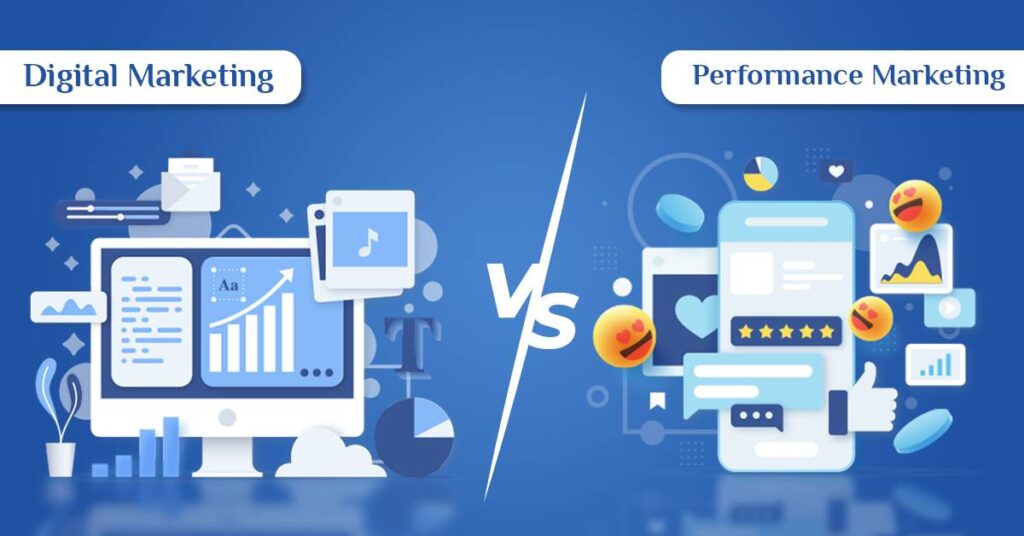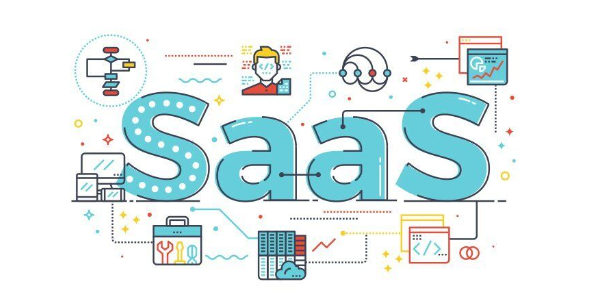
Performance Marketing vs Digital Marketing: Understanding the Key Differences
Introduction
Performance marketing and digital marketing are two popular terms in the world of advertising and marketing. While they may sound similar, they are distinct concepts that serve different purposes. In this blog, we will explore the key differences between performance marketing and digital marketing.
What is Digital Marketing?
Digital marketing is a broad term that encompasses all marketing efforts that use digital channels to reach consumers. It involves the use of various online platforms, such as social media, search engines, email, and websites, to promote products and services. Digital marketing is essentially the umbrella term that includes various strategies and tactics to reach and engage with customers online.
Digital marketing can be divided into several categories, such as:
Search Engine Optimization (SEO): SEO is the process of optimizing your website to rank higher in search engine results pages (SERPs). The aim is to increase visibility and attract more organic traffic to your website.
Pay-Per-Click Advertising (PPC): PPC advertising involves paying for ads to appear on search engines or social media platforms. Advertisers only pay when a user clicks on their ad.
Social Media Marketing (SMM): SMM is the practice of promoting your brand on social media platforms like Facebook, Twitter, Instagram, and LinkedIn. The aim is to engage with your target audience and build a loyal following.
Email Marketing: Email marketing involves sending promotional emails to your subscribers to keep them engaged and interested in your brand.
What is Performance Marketing?
Performance marketing is a type of digital marketing that focuses on driving specific actions or outcomes, such as clicks, conversions, or sales. It is a results-oriented approach that emphasizes measurable performance metrics.
In performance marketing, advertisers only pay when a specific action is taken by the user. This could be a click, a lead, a sale, or any other predetermined action. The goal is to achieve a specific result, and the success of the campaign is measured by the cost per action (CPA) or return on investment (ROI).
Performance marketing includes a range of tactics, such as:
Affiliate Marketing: Affiliate marketing involves partnering with other businesses or influencers to promote your products or services. The affiliate earns a commission for every sale or lead they generate.
Influencer Marketing: Influencer marketing involves partnering with influencers to promote your brand to their followers. The goal is to leverage the influencer’s credibility and reach to increase brand awareness and drive sales.
Retargeting: Retargeting involves showing ads to users who have previously interacted with your brand. The aim is to remind them of your product or service and encourage them to complete a purchase.
Key Differences between Performance Marketing and Digital Marketing
Focus: The main difference between performance marketing and digital marketing is the focus. Digital marketing is focused on building brand awareness and engagement, whereas performance marketing is focused on driving specific actions or outcomes.
Metrics: Another key difference is the metrics used to measure success. In digital marketing, success is measured by metrics like impressions, clicks, and engagement. In performance marketing, success is measured by metrics like CPA, ROI, and conversion rate.
Payment Model: The payment model is also different between performance marketing and digital marketing. In digital marketing, advertisers pay for impressions or clicks, regardless of whether they result in a conversion. In performance marketing, advertisers only pay when a specific action is taken by the user.
Strategy: The strategies used in performance marketing and digital marketing are also different. Digital marketing strategies are designed to build brand awareness and generate interest in the brand. Performance marketing strategies are designed to drive conversions and sales.
Targeting: Targeting is another key difference between performance marketing and digital marketing. Digital marketing tactics like SEO and social media marketing rely on targeting users based on their interests or demographics. Performance marketing tactics
Which Approach is Right for Your Business?
When it comes to choosing between performance marketing and digital marketing, there is no one-size-fits-all solution. The best approach will depend on your goals, your budget, and the preferences of your target audience.
Ready to work smarter, not harder? Try Zavops today.






